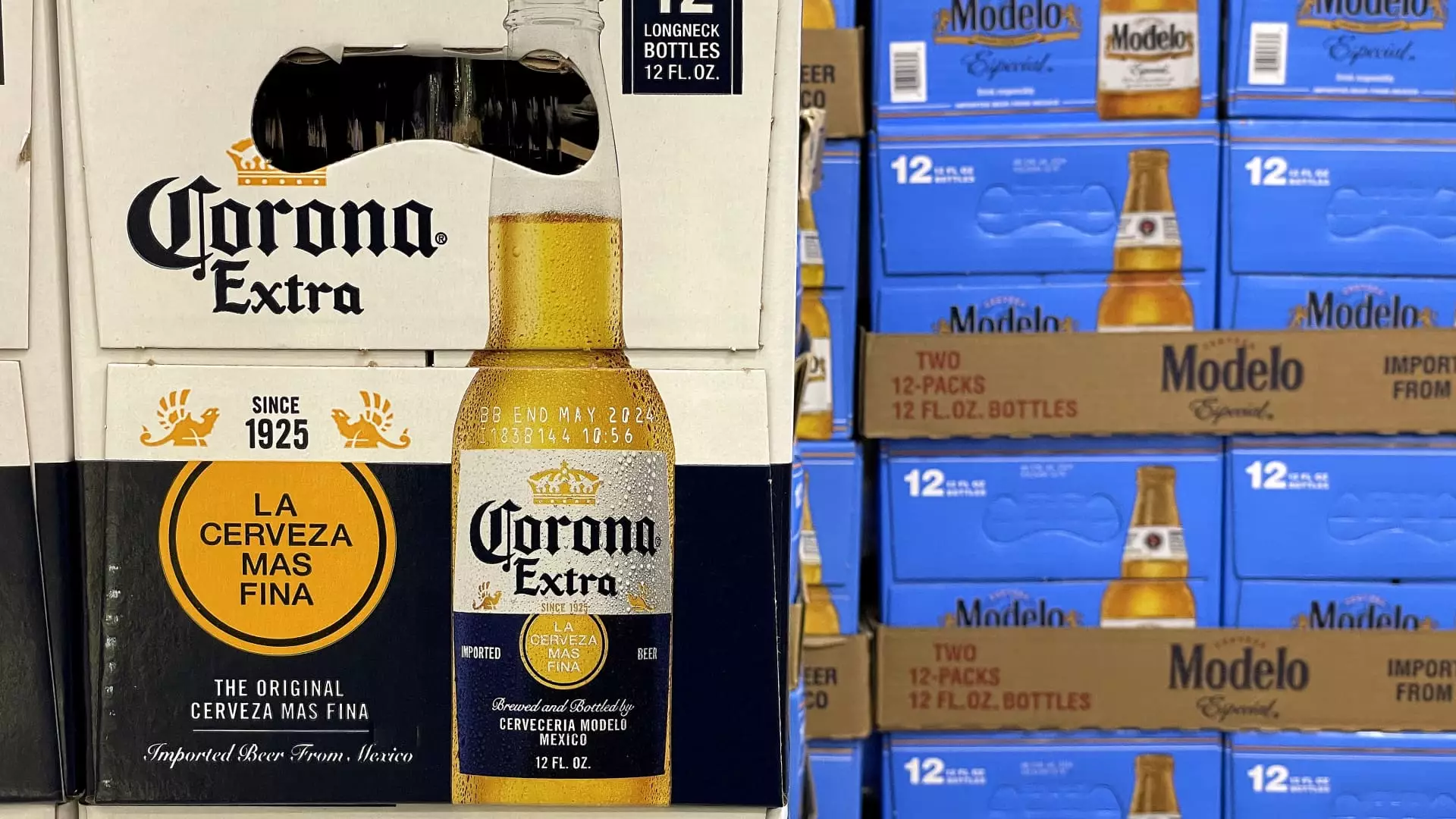Constellation Brands, a prominent player in the beverage sector featuring a robust lineup of beer, wine, and spirits, recently delivered quarterly results that have raised serious concerns among investors. With net sales stagnating at $2.46 billion for the three-month period ending on November 30, expectations from market analysts were not met, causing ripples of uncertainty regarding the company’s future. This disheartening performance has led to introspection about the stock’s place in investment portfolios and whether it warrants continued support.
The earnings report indicated that Constellation’s adjusted earnings per share (EPS) were $3.25, a modest decline compared to the previous year, and also fell below the anticipated $3.31. Such figures are not merely numbers; they reflect the challenges the company faces in sustaining growth in a competitive market. While the beer segment, home to popular brands like Modelo and Corona, shows potential, the stagnation in sales and diminishing margins in both the wine and spirits divisions suggest deeper problems that cannot be easily overlooked.
Despite the overall disappointing results, there is a kernel of optimism in Constellation’s beer segment. While sales increased by a meager 3% year-over-year to $2.03 billion, this was insufficient to compensate for the nosedive in the other divisions. The operating income within the beer segment saw a slight uptick, but again, this was below expectations, mirroring the overall sluggishness that the company contends with. It is evident that while the beer business serves as the “growth engine,” it operates under constraints that impede its potential.
The wine and spirits division experienced a staggering 14% drop in sales, a dismal figure that raises alarms regarding the viability of this part of the business model. With shipments down 16.4% and significant contractions in operating income, the profitability of this segment is increasingly in question. Although management has indicated a willingness to divest this struggling unit, the current performance suggests that change may be necessary sooner rather than later.
Equally troubling is the suggestion that external factors, such as the rise of cannabis-based alternatives and the impact of weight loss drugs, may be influencing consumer preferences. As younger consumers shift their interests away from traditional alcoholic beverages, Constellation Brands may find it difficult to reposition itself effectively in a rapidly evolving market.
The stock market’s reaction to these results was swift and telling. With shares plunging over 16% in a single trading session, investor sentiment has turned cautious. The decision to downgrade Constellation’s stock rating further illustrates the shift in outlook among analysts. The new price target of $240 per share — down from $300 — conveys a sentiment of trepidation rather than optimism. For investors who previously saw Constellation as a reliable option, these developments have sparked a reconsideration of its long-term viability in their portfolios.
Management’s adjusted fiscal 2025 guidance echoes this cautious stance. The revised projections indicate an expected sales growth of just 2% to 5%, marking a stark decline from prior estimates. Particularly concerning is the anticipated downturn in the wine and spirits segment, which is poised to see sales contraction ranging from 5% to 8%. In light of such foreboding forecasts, investor confidence may wane even further.
However, the company’s revised free cash flow target does present a glimmer of hope, projected between $1.6 billion to $1.8 billion. This financial flexibility may be critical as Constellation navigates these tumultuous waters, offering some reassurance to those who continue to hold a stake in the company that it is still capable of generating cash flow despite its operational challenges.
Constellation Brands stands at a pivotal crossroad. The recent quarter’s disappointing performance has forced both analysts and investors to take a hard look at the company’s future in the ever-competitive beverage landscape. While the beer segment remains a beacon of potential, the struggles within the wine and spirits divisions cannot be dismissed. Moving forward, management must prioritize strategic adjustments, potentially focusing on premium brands within the beer segment while divesting from underperforming units. As the landscape of consumer preferences continues to evolve, Constellation must act decisively if it is to reclaim its previous standing and restore investor confidence.

